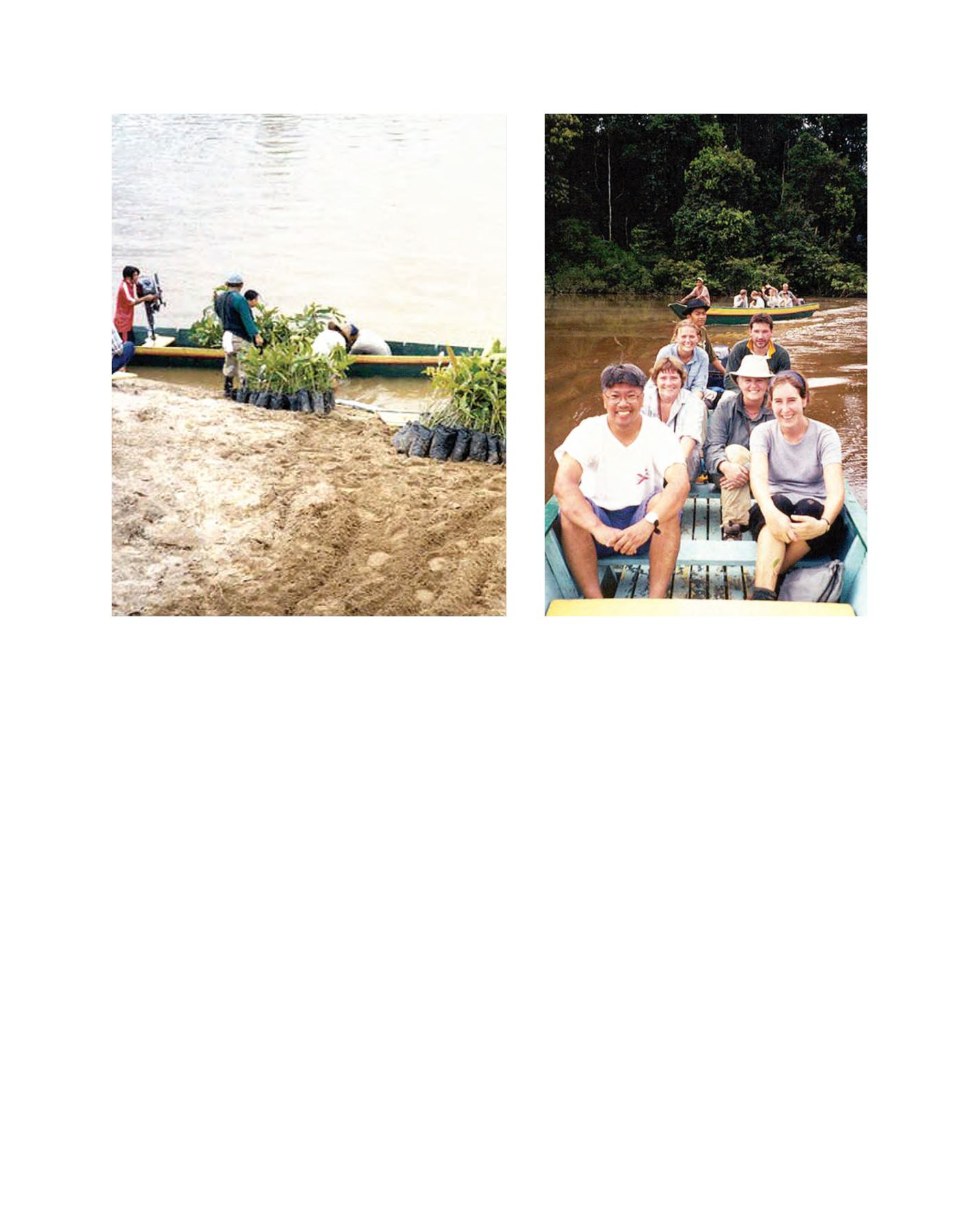

[
] 210
KOPEL set up a volunteer initiative and worked with various
organizations such as Global Vision International (GVI) to arrange
volunteer groups to support the community and conservation work
at Batu Puteh. These partner organizations helped with many prac-
tical arrangements such as flights, visas, medical needs and other
practical requirements such as pre-arrival briefings and training.
When the idea of introducing homestay programmes was first
mooted, its success depended on acceptance by community leaders
and elders and the cultural ambience of ordinary households towards
foreign tourists living among them. Community leaders were brought
into the discussions by the youth group at an early stage so that they
could be informed and offer advice. To ensure acceptance of tourists
in the homestay programmes, local communities would have to feel
that they were not asked to go beyond their limits in accommodating
visitors. Initial wariness was overcome by prior distribution to visitors
of information about local household culture and norms.
To secure the ecotourism jobs and income that arise from initia-
tives such as the homestay programmes, KOPEL has to ensure
regular visitor rates year round by raising promotions and main-
taining a strong relationship with tour agents and NGOs managing
volunteering tourists.
Sustaining sources of finance and community jobs
KOPEL and MESCOT have links to many organizations that they can
rely upon to provide sustained financial support. MESCOT is funded
by national and international organizations, including Government
departments, NGOs and private firms.
An example of a financial support package is Shell
Malaysia’s provision of a seed grant of RM220,000 as part
of a Memorandum of Understanding signed in February
2002 with WWF Malaysia and Raleigh International to
develop Tungog eco-camp and its associated structures.
Sabah Forestry Department provided the permit for
KOPEL to use the Pin Supu Forest Reserve, while WWF
Malaysia and Raleigh International provided adminis-
trative and management expertise to the project. Shell’s
participation in this programme was aimed at build-
ing local capacity that will benefit the community and
enhance the conservation of biodiversity and wildlife of
the Kinabatangan floodplain.
International student volunteers from the UK, Australia,
Japan and Brunei participated through programmes
such as Outlook Expedition, Raleigh Expedition, Global
Volunteering Institution and International Brunei School,
while other interested tourists contributed large sums of
money to participate in indigenous tree planting activities.
During the period 2008-2010, KOPEL received
commissions for a 300 hectare enrichment planting job
and a 700 hectare silvicultural treatment works, with a
budget of RM1.3 million. 10 per cent of this money went
to the management fund of KOPEL to sustain future
projects. The experience gained has allowed KOPEL to
provide consultancy services in preparing the CBFET
model in other villages.
Transporting seedlings for planting by boat
Ecotourism: Boat trip along the Kinabatangan river
Image: KOPEL
Image: KOPEL
















